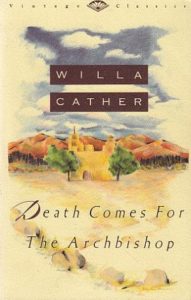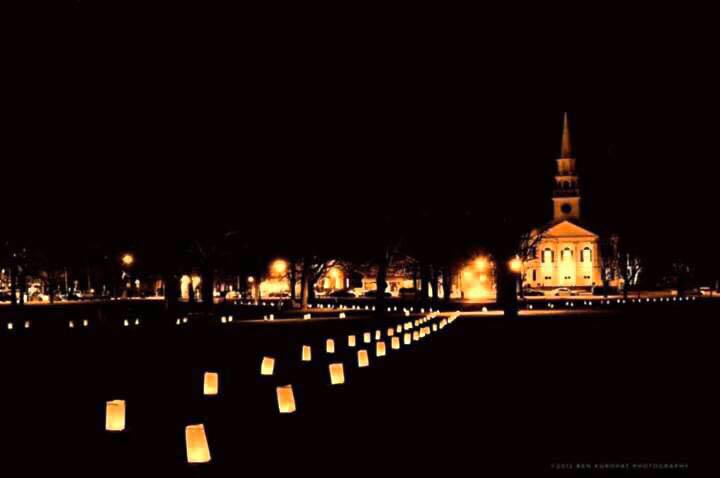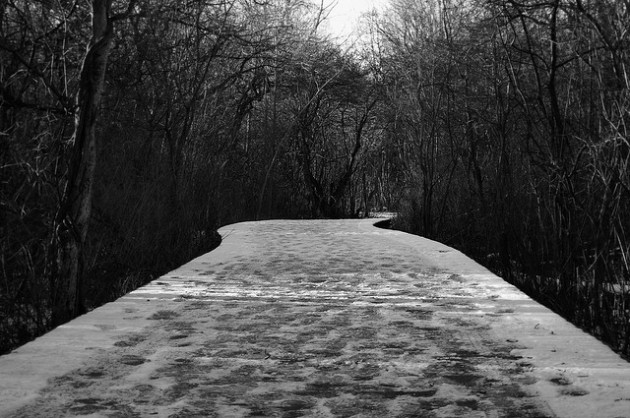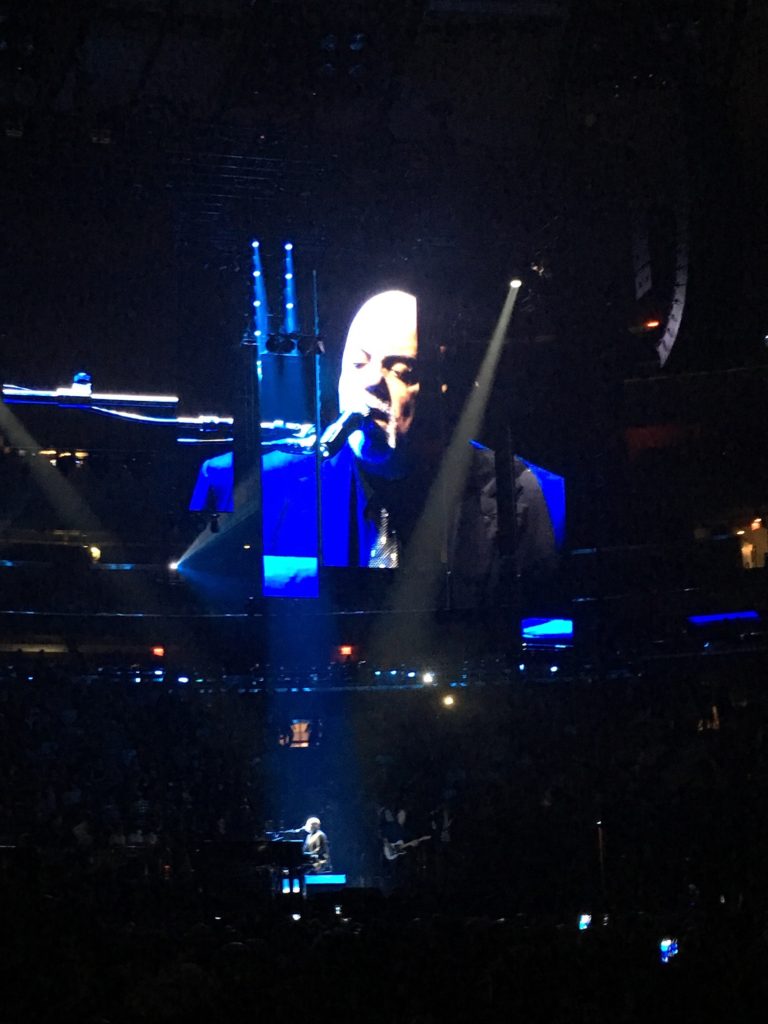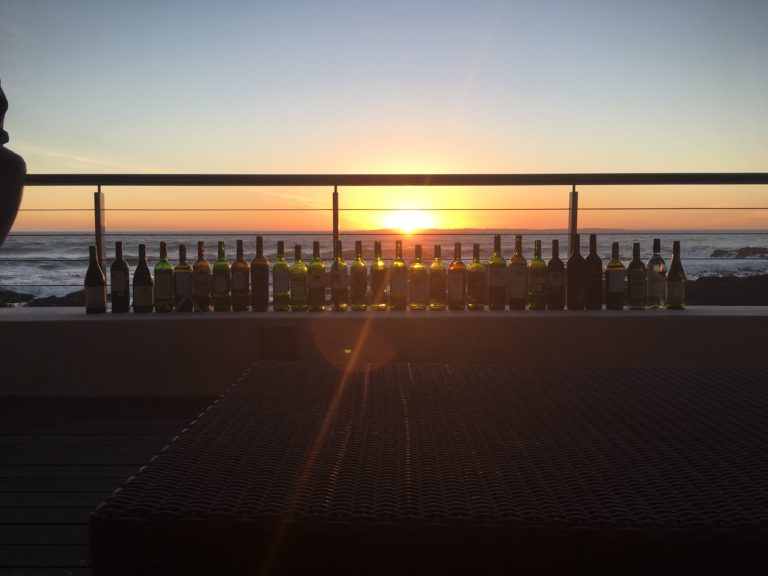“This is Us”
A Sermon for First Congregational Church of Guilford, UCC
Matthew 11:2-11
December 4, 2016
Back in my days as a high school English teacher, one of my favorite essay questions was to ask them to describe their favorite sidekick in literature. You know what I mean: the one who is always there with the main character. For Don Quixote, it was Sancho Panza. The Great Gatsby had Nick Caraway. Pooh had Piglet. You find them in film and television as well: Lucy had Ethel, Andy Griffith had Barney Fife.
When we come to John the Baptist, it may be tempting to see him in the same light: the sidekick of Jesus. Yet, other than Jesus’s baptism, they aren’t even in the same scene. Yes, John pointed to Jesus as the One We’ve Have Been Waiting For, but he didn’t drop what he was doing and follow along with the others. You remember from Ginger’s sermon last week, John was living in a camel hair suit down by the river, calling people “broods of vipers” and telling them to repent. Where we join the story today, a good bit of time has passed. Jesus has established his own ministry, with his own disciples. John is in prison because the powers that be got tired of being called names and being called out for their oppression. His disciples came with word of all that Jesus was doing—without being arrested, and John sent them to Jesus to ask a question.
Listen now to the account from Matthew’s gospel:
Now when Jesus had finished instructing his twelve disciples, he went on from there to teach and proclaim his message in their cities.
When John heard in prison what the Messiah was doing, he sent word by his disciples and said to him, “Are you the one who is to come, or are we to wait for another?” Jesus answered them, “Go and tell John what you hear and see: the blind receive their sight, the lame walk, the lepers are cleansed, the deaf hear, the dead are raised, and the poor have good news brought to them. And blessed is anyone who takes no offense at me.”
As they went away, Jesus began to speak to the crowds about John:
“What did you go out into the wilderness to look at? A reed shaken by the wind? What then did you go out to see? Someone dressed in soft robes? Look, those who wear soft robes are in royal palaces. What then did you go out to see? A prophet? Yes, I tell you, and more than a prophet. This is the one about whom it is written,
‘See, I am sending my messenger ahead of you,
who will prepare your way before you.’
Truly I tell you, among those born of women no one has arisen greater than John the Baptist; yet the least in the kingdom of heaven is greater than he.” (NRSV)
I have to say I think this is an odd passage for Advent. Here in these weeks before Christmas, as we prepare for the birth of Jesus, shouldn’t we be reading about the angels coming to Joseph telling him to “Fear not!” Isn’t this the time for the Elizabeth and Zacharias to learn of the birth of their son, John, or time for Mary to sing, “Let it Be,” while we wait for shepherds and magi to arrive? Yet, we now have had two weeks of stories that needed to have spoiler alerts: the kid grew up and had quite an impact. Why these stories now?
There’s a Christmas song that begins,
Baby, lying in a manger, slumbering so sweetly
What are you going to be?
Reading these stories of John and Jesus remind us that our journey to Bethlehem is not as much about the baby as it is the person he became. If there were not stories of Jesus as an adult, as the one who fleshed out the love of God until it killed him, we would not need to sing “Away in a Manger.” And as we look at the Love Candle alight in the wreath here at the front, we get a chance to see what love looks like all grown up, on beyond Bethlehem.
John had incarnated a rather fierce gospel. This guy was intense. It struck me this week that to say he was eating wild honey means he had to go into the hive to get food. He was edgy and fearless, to say the least. He had been out in the desert by the Jordan river preaching like the prophets of old, which meant he was speaking truth to power; he was not delicate about it, which got him arrested. Besides his righteous indignation, I’m sure he went through a symphony of emotions evaluating whether or not it had all been worth it, including some doubt about what Jesus was up to. If Jesus was the Messiah, why wasn’t he in trouble with the authorities? He wasn’t who John thought he was going to be, so he sent his people to ask directly, “Are you the One?”
Jesus answers the question rather cryptically: go and tell John what you see and hear, and then he talks about his interactions with individual folks, about his healing work with people. He finishes by saying John is good as they come and he’s not any better than anyone else. Somewhere in the middle of it all, Jesus adds, “Blessed are those who take no offense at me—a better translation is “who are not scandalized by me.”
Why would healing be a scandal?
I’ve been reading Annie Dillard’s book Pilgrim at Tinker Creek over the past week and she used the word scandal, as well, as it relates to Jesus. Listen.
That Christ’s incarnation occurred improbably, ridiculously, at such-and-such a time, into such-and-such a place, is referred to—with great sincerity among believers—as “the scandal of particularity.” Well, the “scandal of particularity” is the only world that I, in particular, know. What use has eternity for light? We’re all up to our necks in this particular scandal. (80)
Yes, we are. We are living with the grief and self-doubt of our own lives; we know what John means by calling us vipers. We are marking the days of Advent like many who have come before us, trying to make meaning of the Incarnation and the birth of Christ twenty-one hundred years later. We are coming to terms with our own need for repentance, and our own desire to know if Jesus is the one in whom we can find hope and healing in our particular time and in this particular place.
From our particular vantage point, we can hear John’s question in another light.
Perhaps from his prison cell John just wanted to know if Jesus was going to keep the promise of his birth, his person, and his calling. As we walk through this particular Advent, is our question any different? We, as Americans, are facing outbursts of racism and sexism and all kinds of hatred that kind of leave us feeling snakes. And we are so wrapped up in our particular problems that we hardly have time to hear that there are no longer any working hospitals in Aleppo, Syria, or that thousands upon thousands are starving in Yemen. And we don’t know what to do about any of it.
The birth of Jesus carries the promise of peace on earth and goodwill to all, and yet it feels like that promise is just as faraway as it was when John first asked Jesus, “Are you the one, or should we look for someone else?”
Does it matter that we follow Jesus, or should we be looking for other options?
Let us listen again to Jesus’s answer: “Go and tell John what you see and hear: the blind receive their sight, the lame walk, the lepers are cleansed, the deaf hear, the dead are raised, and the poor have good news brought to them. And blessed is anyone who is not scandalized by me.”
Jesus wasn’t any less eccentric than John, or any less aware or in touch with all that was wrong with the world, and he was not being simplistic about how to meet the overwhelming need one person at a time. To truly offer healing means to truly be able to see the brokenness and still be able to see that love will have the last word. I think the scandal of Jesus is that it may be easier to believe we are a bunch of snakes who need to keep coming back to the river to repent and say we’re sorry than it is to believe our faith in Christ will give us the strength to keep trusting that God’s love fleshed out in us can change the world. We are not called to be perfect; we are called to be faithful. We are called to be healers: to follow Jesus into the mess of our particular lives and live out love for as long as it takes.
Both John and Jesus call us to see ourselves are we truly are, blemishes, wounds, shortcomings, and all. John preached a baptism of repentance: confess your sins—come to terms with yourself; Jesus preached a gospel of healing: come to terms with how God looks at us. The two are not mutually exclusive, or merely steps in a process, but a joint invitation to a life with God: live in the creative tension of the accurate vision of our brokenness and the truth of our wholeness in Christ. When John baptized Jesus, a voice came out of the heavens saying, “This is my beloved Child, in whom I am well pleased.” Jesus lived out that blessing by healing and reminding us, as Ginger often says, that we are wonderfully and uniquely created in the image of God and oh, so worthy to be loved. Every last one of us. And us is everyone. Every last one. There is no them. Look at Aleppo. Look at Standing Rock on both sides of the water cannon. Look at Washington on both sides of the aisle. Look at Russia. Look at North Carolina. Look at Guilford. There is no them. This is us.
My church family, the Light of Love shines in the darkness, and the darkness cannot put it out. We have heard Love call our names are called to be bearers of that light to all who need to hear that love is the last word. And that is every last one of us. Who among us needs a particular healing word or touch this particular week? How will we share the love of Christ in particular? Are we the ones who will do it, or should they look for someone else? Amen.
Peace,
Milton
P.S. You can hear the recording of the sermon here.


